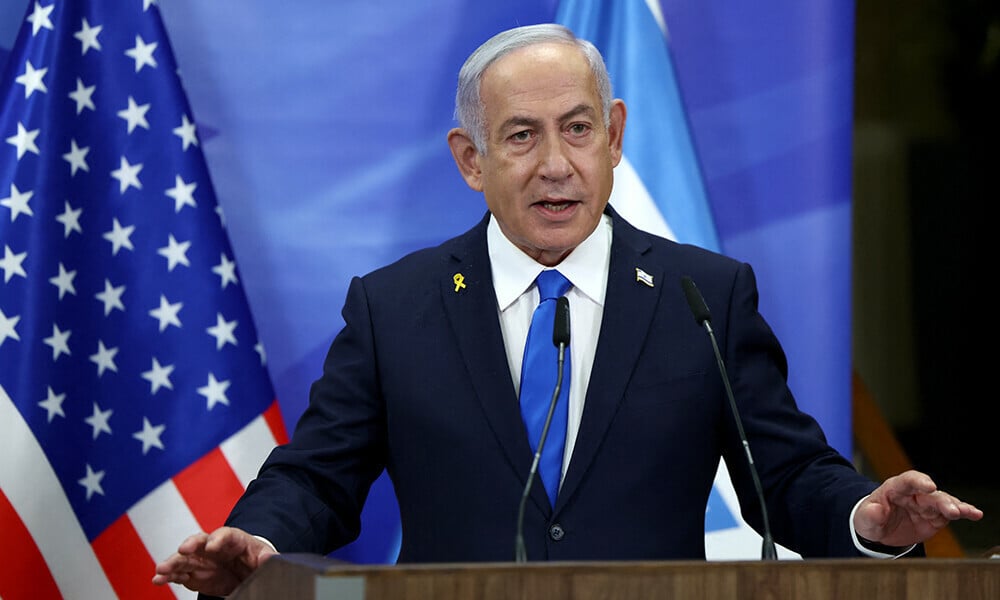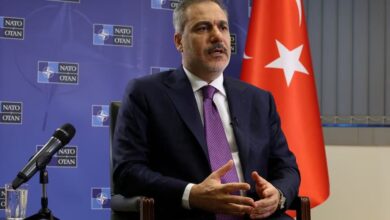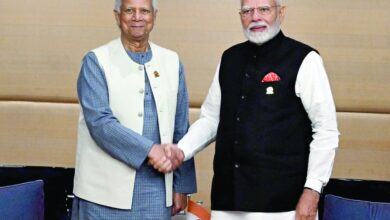Israeli Prime Minister Benjamin Netanyahu’s office is facing renewed scrutiny after police arrested two close associates accused of receiving payments from Qatar to promote its image in Israel, intensifying concerns over foreign influence at the highest levels of government.
The scandal, dubbed “Qatargate” by local media, erupted this week with the arrests of Netanyahu’s longtime media adviser Jonatan Urich and former spokesman Eli Feldstein.
Both men are suspected of running a covert public-relations campaign to improve Qatar’s standing in Israel while it served as a key mediator in ceasefire talks between Hamas and Israel.
Police allege the campaign included spreading negative narratives about Egypt—another mediator in the conflict—and funnelling payments through an American lobbyist.
The suspects face potential charges including bribery, money laundering, fraud, breach of trust, and illegal contact with a foreign agent.
Netanyahu, who has provided a statement to police but is not a suspect in the case, called the investigation politically motivated and accused authorities of holding his advisers “hostage”—a remark criticised by many given that dozens of Israelis remain in Hamas captivity.
The scandal adds to mounting political pressure on Netanyahu, who is already standing trial for corruption and facing widespread protests over his handling of the Gaza war and internal institutional tensions.
His recent attempt to dismiss the head of the domestic intelligence agency Shin Bet, which is investigating the alleged Qatar links, has drawn particular criticism.
The nearly 18-month conflict in Gaza resumed after the collapse of a Qatar-brokered ceasefire last month. Qatar, often viewed with suspicion in Israel due to its ties with Hamas and hosting of the group’s leaders, has denied backing the militants and insists its aid to Gaza was coordinated with Israel.
Analysts say Qatar may have sought to reshape its image in Israel to protect its role as a mediator and maintain favour with US allies. A court document reportedly links the media campaign to efforts to influence Israeli public opinion and US policy.
One journalist, Jerusalem Post editor Zvika Klein, was questioned after visiting Qatar and writing favourable pieces. He has been barred from media commentary pending the investigation.
Feldstein is also facing trial in a separate case involving the leak of classified material. His and Urich’s detentions were extended by a judge earlier this week.
Critics argue the scandal underscores vulnerabilities in Israel’s political system and raises questions about foreign governments’ ability to access and shape internal policy.
“The abuse of public office in this case, if proven, is deeply troubling,” said Tomer Naor from the Movement for Quality Government in Israel.
The probe has also complicated Netanyahu’s relationship with security institutions. The dismissal of Shin Bet chief Ronen Bar was frozen by a court amid concerns that it was an attempt to disrupt the investigation. Netanyahu has denied the claim but continues to pursue Bar’s replacement.
For now, the “Qatargate” affair further tarnishes the embattled premier’s record and deepens public discontent as the Gaza war drags on and domestic tensions mount.







